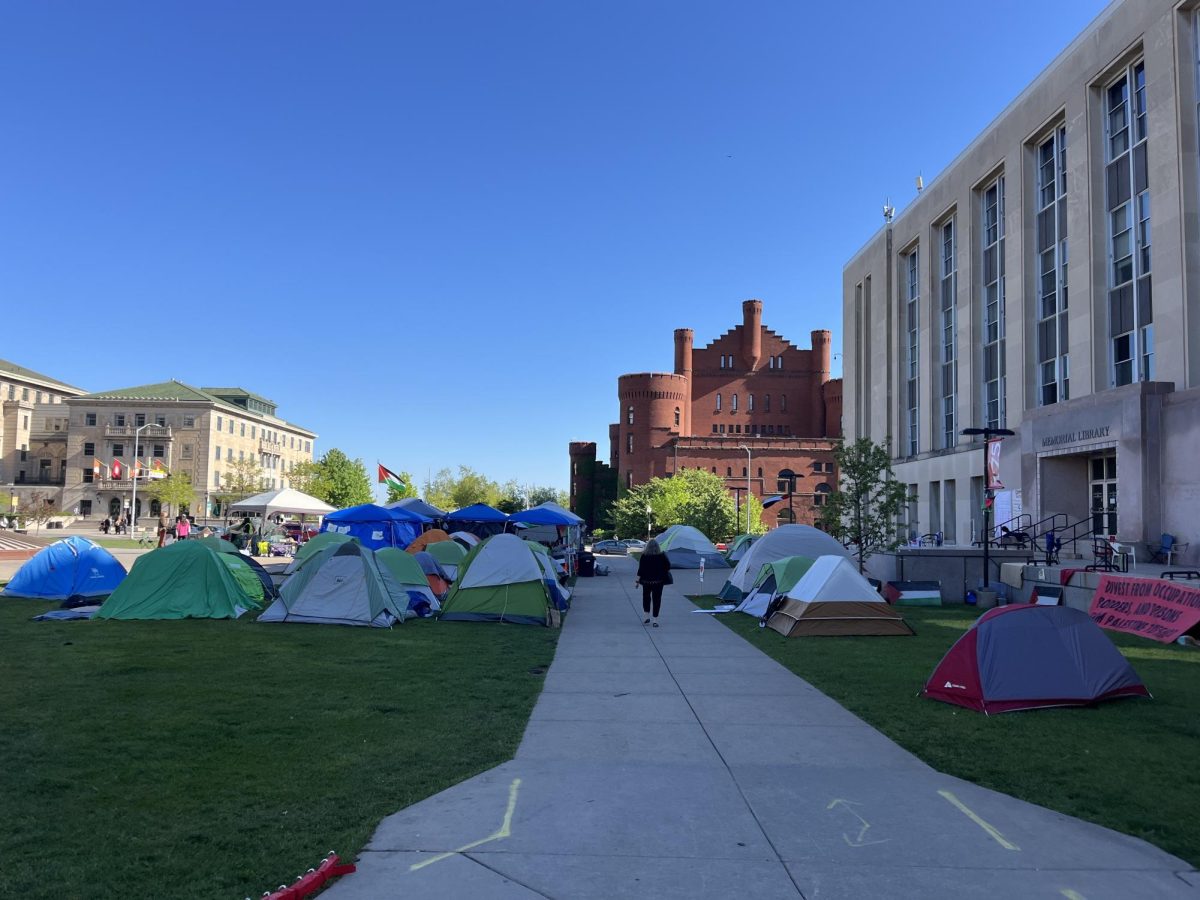The same story has run through Madison’s papers countless times since 2007. A bar goes before the Alcohol License Review Committee asking for an entertainment license, a change in capacity or even their first liquor license, and while committee members agree the bar may be a great addition to the downtown atmosphere, they must vote no for one reason: it is not allowed under Madison’s Alcohol License Density Ordinance.
The ordinance, which was created in response to downtown alcohol related crime and the campus binge drinking culture, limits the amount of liquor licenses that can exist within the boundaries of the ordinance.
Initially, ALDO was set to sunset in October of this year unless it was renewed by the city council, however the expiration date was recently extended until March of 2011 to allow city officials and business owners time to find the right balance between control and allowing businesses to grow.
History
While ALDO was not passed until 2007, its origins date all the way back to 2004, Madison Police Central District Capt. Mary Schauf said, when Madison hired a problem analyst to look at the connection between crime and alcohol use.
She said the findings showed crime and violence was clustered in the same areas that also had large alcohol license clusters, especially around bar time. She said the crimes ranged from open container violations to underage drinking tickets to aggravated assault.
Flash back to 2006, when then Alcohol Policy Coordinator Joel Plant initiated public hearings and committee meetings on the plan.
Supporters of the idea said allowing more downtown bars would only compound the problem of alcohol related crime on and near campus. In 2007, George Twigg, then-spokesperson for Mayor Dave Cieslewicz, told The Badger Herald the plan would also help Madison Police Department respond to downtown crime in a more efficient way.
Early in 2007, the plan perfected through committees and public hearings was passed by the Public Safety Review Board and the Downtown Coordinating Committee.
Finally in September of that year, city officials debated for three hours before passing ALDO in a 13-6 vote.
Controversy
The backlash was almost immediate.
Some vocal opponents included local bar owners. The day after ALDO was passed, owners of popular campus bars State Street Brats and Hawk’s Bar and Grill told The Badger Herald the ordinance limited downtown business development and would do little to help the drinking problem on campus.
While they could potentially lose business from new bars being opened, they still said they were against the ordinance on principle.
That year’s Associated Students of Madison was not in favor of the plan either. Then ASM Chair Gestina Sewell told The Badger Herald the plan was too restrictive, and would have negative implications beyond the intent of those who created it.
Since 2007, the debate has raged on. Critics of the ordinance say it limits the amount of entertainment options available downtown.
If no new liquor licenses can be granted downtown, then venues that make most of their money from alcohol but provide a different type of entertainment such as movies, games or music cannot open unless they are taking the space of a current bar.
Ald. Mike Verveer, District 4, whose district is heavily affected by ALDO, said he would not vote for an extension of ALDO unless it included a clause exempting entertainment venues like these from the ordinance.
The issue of how to allow more of these types of locations has not yet been resolved.
Another recent topic of contention was the 365 day rule, a provision to the ordinance which required owners of closing bars to find a new bar to fill it within one year or else that building would lose its space in the density plan.
Madison’s Central Business Improvement District introduced an amendment that would repeal it earlier this year, stating in the current economic climate, the provision does not leave business owners with enough time to find an appropriate new tenant.
The amendment was passed after extensive debate.
Future
With the ordinance set to expire in March 2011, city officials, business owners and UW students are all gearing up to offer their opinions and make hard decisions relating to the ordinance.
At a meeting of ASM’s Legislative Affairs Committee earlier this week, Chair Sam Polstein said city officials would really value what UW students have to say.
“They’re desperately looking for student opinions on this issue,” Polstein said at the meeting.
He added in the coming semester this would be an issue LAC will really focus on.
At a recent meeting of the ALDO Subcommittee, city officials questioned how effective the ordinance has been in preventing alcohol abuse in the downtown area.
Because ALDO is only one part of MPD’s Downtown Safety Initiative, there is no clear data on exactly what ALDO has done to help with campus alcohol safety.
With the sunset of the ordinance approaching in only six months, all that is clear about the future of ALDO is there will be a change, a renewal or a repeal.
“In terms of the future I think politically the reality is that ALDO will be extended beyond the March 2011 date,” Verveer said. “The big question in my mind… is in what way it will be extended.”















